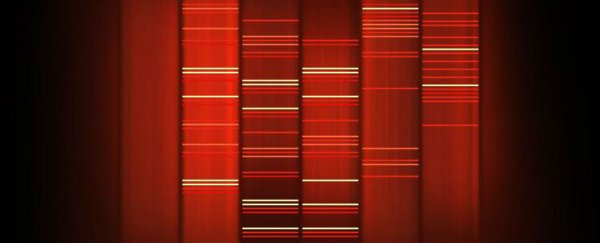It sounds like a scene out of a sci-fi film, but a few weeks into attending sixth grade at a middle school in Palo Alto, California, Colman Chadam was asked to leave because of something his parents revealed to teachers about his DNA.
The problem was that Chadam has some of the genetic markers for cystic fibrosis - a rare, inherited disease that severely affects the lungs and digestive system, making a patient highly susceptible to contagious infections. Having these markers doesn't mean he has the disease, and Chadam has never displayed any related symptoms, but because his school already had two other students in attendance with cystic fibrosis, Chadam was out.
Still sound crazy? Well, it is and it isn't. It is, because despite what his DNA looks like, Chadam has never been diagnosed with cystic fibrosis. But the school did what it did because people with cystic fibrosis need to be separated due to a heightened risk of 'cross-infection' when it comes to certain germs.
"In people with cystic fibrosis, thick, sticky mucus that clogs the lungs also allows germs to thrive and multiply. This buildup makes them more susceptible to developing lung infections," says the US Cystic Fibrosis Foundation.
"When there is more than one person with cystic fibrosis in your school, it is essential that they be kept a minimum of 6 feet (1.8 metres) apart from each other. Germs can spread as far as 6 feet through droplets released in the air when people cough or sneeze."
Chadam's parents allege that after disclosing their son's medical details to the school confidently, a teacher relayed this information to the parents of the siblings with cystic fibrosis. They complained that Chadam's attendance posed a serious health risk to their kids, and so he was asked to leave.
I say "allege", because while all of this actually happened way back in 2012, Chadam's parents have been trying to sue the school over genetic discrimination ever since.
Back in 2013, the family's request to sue the school for violating the Americans With Disabilities Act and Chadam's First Amendment right to privacy was thrown out by the district court, but this month they appealed to the US Ninth Circuit Court of Appeals to hear their case. Attorneys for the US Departments of Justice and Education have shown their support.
"The family would like a definitive and unequivocal statement from the Ninth Circuit that you can't just do this to people based on genetic markers alone," Stephen Jaffe, the family's attorney, told BuzzFeed News last week. "The more people that get genetic testing done, either for medical reasons or recreationally, the more possibility this stuff gets out. … It's not a great leap to be concerned about what happens to this information."
How the case will play out is not yet clear, but whatever the outcome, it will likely set a very interesting precedent as we head towards a future where genetic testing is no longer prohibitively expensive. If any individual, any parent, has access to DNA tests, will situations like this occur more frequently, and will this discourage people from wanting to know the ins and outs of their genome?
As Sarah Zhang reports for Wired, right now, the federal Genetic Information Nondiscrimination Act (GINA) of 2008 has only specifically outlawed genetic discrimination in two cases: employment and health insurance. This means the Chadams' lawyers have to invoke the Americans With Disabilities Act (ADA) instead, but until now, no one's ever sued over genetic discrimination outside of GINA.
There is one case where railroad company workers were filing for worker's comp because of carpal tunnel syndrome, and the company used genetic testing to see if they had any predispositions for the disease. But because it was settled out of court, it's not the legal precedent that the Chadams need.
"The workers got $2.2 million - but because the suit ended in a settlement rather than a court decision, it did not establish a legal precedent for the ADA covering discrimination based on genes," says Zhang. "The outcome in Chadam's case could, if a trial goes forward, spell out exactly who gets to access genetic information and what decisions can be made based on it."
The future is here, everyone. The time to start figuring out what we want it to look like.
